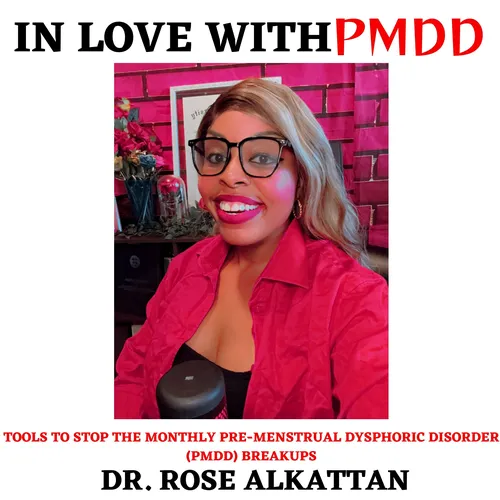Top 5 Reasons for PMDD Breakups
- Author
- Dr. Rose Alkattan
- Published
- Fri 05 Sep 2025
- Episode Link
- None
Me Before PMDD: Relationship Reset Toolkit-Couples
Click to Book a Private PMDD Session
Follow me on Instagram
Follow me on TikTok
The moment I realized my relationship was ending wasn't during a heated argument or a dramatic confrontation. It happened in paradise—on a beautiful balcony in Los Cabos, where I should have felt at peace but instead felt utterly disconnected from my partner despite my desperate attempts to reconnect.
This disconnect wasn't about not loving each other enough. It wasn't even about the challenges of managing PMDD symptoms. It was something deeper—the gradual, devastating loss of hope that things could ever truly improve between us. After trying everything I knew to rebuild our connection and still feeling miles apart, I faced the painful truth that sometimes love isn't enough when fundamental needs remain unmet.
Through years of counseling couples affected by PMDD, I've identified five critical patterns that signal when a relationship has moved beyond the typical monthly conflicts into territory where permanent separation becomes likely. From the emotional exhaustion of cyclical breakup threats to the erosion of intimacy that turns partners into roommates, these warning signs emerge long before the final decision to separate.
What makes these patterns particularly dangerous is how gradually they develop. Most couples wait until they're drowning before reaching for help, not realizing that relationship healing—like taking antibiotics—requires consistent, ongoing care rather than a single intervention. One counseling session might provide temporary relief, but without continued support, couples often find themselves sliding backward into even deeper disconnection.
Whether you're currently struggling in a PMDD-affected relationship or supporting someone who is, understanding these patterns can help you recognize when it's time to commit to serious intervention. The question isn't whether your relationship is experiencing difficulties—PMDD guarantees challenges—but whether both partners still have hope and are willing to do the consistent work needed to rebuild connection. Because as I learned on that balcony in Mexico, sometimes the kindest choice we can make is to acknowledge when a relationship no longer serves either person's highest good.
